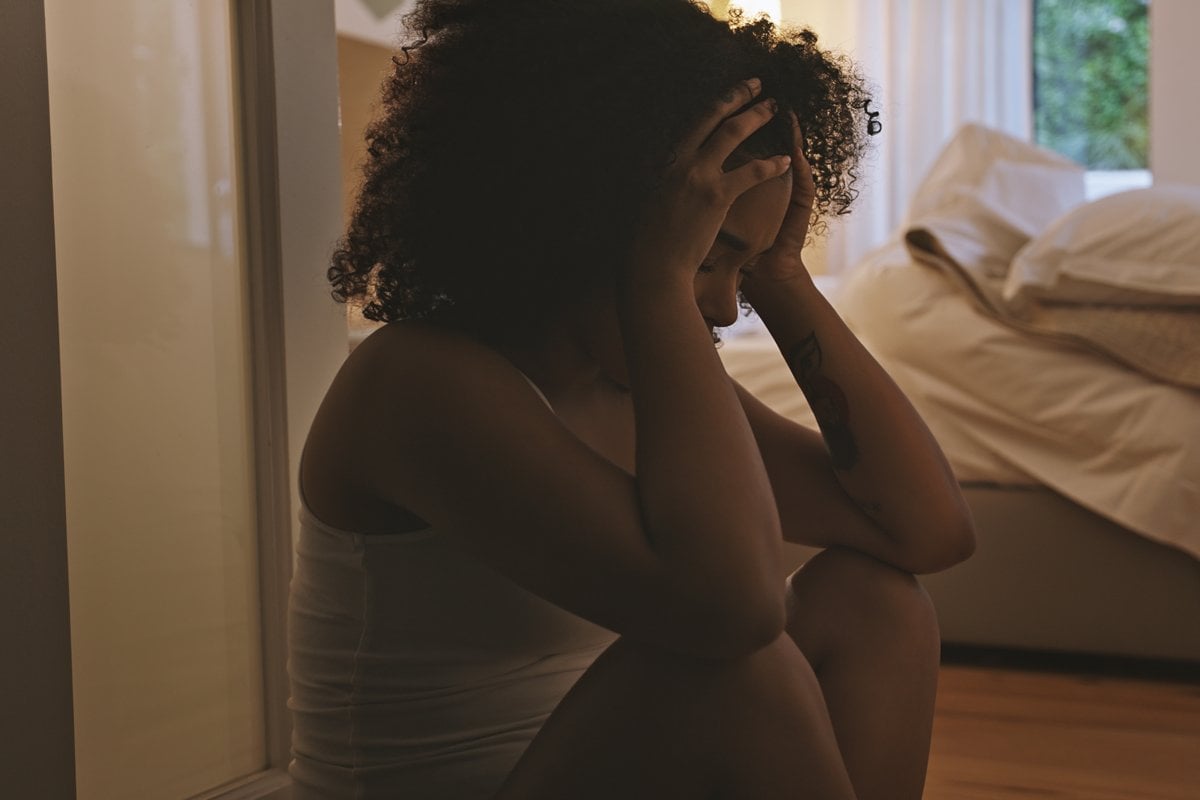
This story mentions domestic violence.
When Angela* met her former partner, an attractive high profile athlete, she was smitten. It was no accident either — this attractive man, six years her junior, was just as into her. At least that’s what he told her.
"I was definitely love bombed and swept up in a very intense relationship," says Angela.
Despite his youth, he was established and self-sufficient, with several properties to his name. Angela had no reason to doubt his feelings. He was in love, he said, and was keen to push the relationship forward — at full speed.
Watch: Coercive control DV. Post continues after the video.
"He really did the early groundwork to have me committed to him, and we moved in within six months, despite my being six years older," she said.
Before long, Angela fell pregnant. And while it was a shock to the couple, they were over the moon. Angela was more than ready to have a baby. "I was very excited — as was he," she says. "It was a bit overwhelming, happening so quickly in a very new relationship but I had moved in and it was all happening. We had the best baby nursery and obstetrician — I was well looked after."

